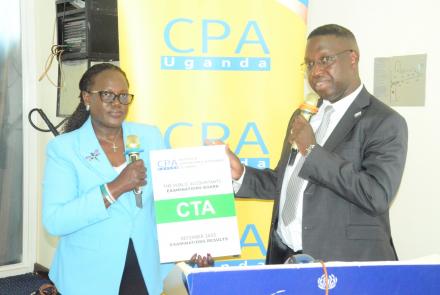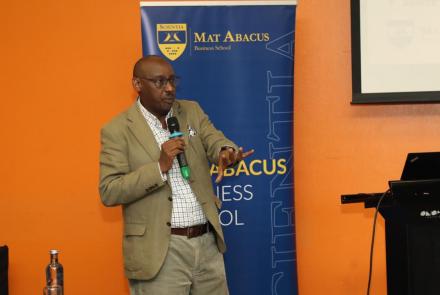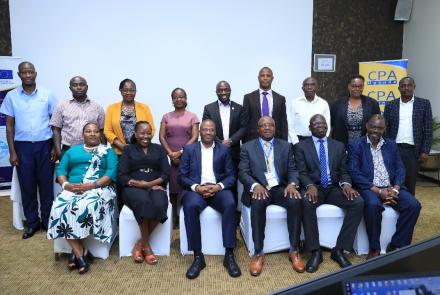By Caroline Nassuuna
Communications Officer
Accountants, policymakers and revenue experts have called for a reset of Uganda’s tax culture to one anchored in trust, professionalism, and economic growth.
Speaking at the 13th CPA Economic Forum on 9 July 2025, CPA Muhammed Ssempijja, the Partner – Tax at Ernst & Young recommended bold tax reforms such as reducing the top individual income tax rate from 40% to 30%, raising the PAYE threshold from UGX 2.82 million (UGX 235,000 monthly) to UGX 6 million (UGX 500,000 monthly), increasing the Value Added Tax (VAT) threshold from UGX 150 million to UGX 500 million, reducing VAT to 10% when oil revenues start flowing, and accepting digital payments via MTN MoMo, Visa, and other platforms.
He argued that these reforms will ease compliance, reduce resistance, and promote formalisation, especially among small businesses.
CPA Ssempijja made a passionate case for trust as the foundation of Uganda’s tax culture. According to Ssempijja, tax compliance can only be voluntary when citizens see value for their money.
He argued that public goods and services are the return on investment for taxes paid, calling for timely delivery of essential services like health, education, and roads, better procurement management, and targeted lifestyle audits to curb corruption.
Dr Joseph Muvawala - Executive Director of the National Planning Authority challenged institutions to rethink tax administration, not merely as law enforcement, but as a professionalised, data-driven system equipped with skilled personnel and grounded in national development goals.
“You can’t build a compliant tax culture on an unprofessional foundation. Tax is not a punishment, it’s a partnership. Uganda’s growth needs to come first, then the taxes will follow,” remarked Dr Muvawala.
He criticised Uganda’s current transactional approach to taxation and called for evidence-based policy, sector-specific strategies, and investment in public services that inspire compliance rather than force it.
Mr Charles Mua – Assistant Commissioner Business Policy at the Uganda Revenue Authority (URA) presented sobering figures: Uganda’s tax-to-GDP ratio remains stuck around 14% which is below the 16% target under the Domestic Revenue Mobilisation Strategy (DRMS). While the taxpayer register has grown from 1.3 million in 2018 to over 5.2 million in 2025, revenue outcomes remain limited by systemic issues, including a massive informal sector, generous tax exemptions, compliance weaknesses, and administrative inefficiencies.
Mua emphasised the urgency of formalising informal enterprises and rationalising incentives that drain public coffers.
“We must invest in enforcement, embrace digital systems, and collaborate across sectors if we are to sustainably fund national development,” urged Mua.
The speakers echoed a shared vision, stating that Uganda must move from fiscal fear to economic foresight. Reforming tax policy is not about extracting more, it is about enabling growth, rebuilding institutional credibility, and nurturing a culture of compliance through fairness, inclusion, and transparency.
The CPA Economic Forum is ICPAU’s flagship platform for addressing critical economic issues that impact the accountancy profession and the wider business landscape. Over the years, ICPAU has consistently provided policy recommendations and tax proposals to the government through the Ministry of Finance, Planning and Economic Development, contributing to meaningful national reforms.
The 13th edition is being held from 9 – 11 July 2025, at the Imperial Resort Beach Hotel, and online. The theme is Sustainable Economic Growth: Transforming Today, Thriving Tomorrow. Resolutions from the Forum will be submitted to the Ministry of Finance, as accountants’ input into national economic policy development.
This year, the forum is organised in partnership with Bank of Uganda, Uganda National Oil Company (UNOC), National Agricultural Research Organisation (NARO), Uganda Printing and Publishing Corporation (UPPC), Electoral Commission, Centenary Bank, Uganda Electricity Generation Company Limited (UEGCL), National Social Security Fund (NSSF), Stanbic Bank, PKF Uganda, Prudential Assurance Uganda Limited and MTN.





